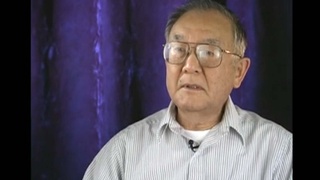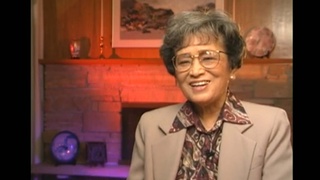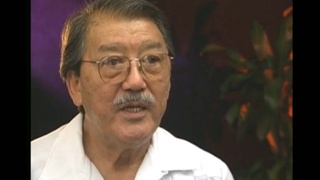Interviews
Rationale for rejecting redress payment
I thought it was important early in the game to make it known that if there were any material acknowledgments to be made, that I would not participate in that, that I would not accept it. I thought that was important to do it very early in the game, in order to make sure that my credibility and participation on the commission [Commission on Wartime Relocation and Internment of Citizens] would not be exposed to some kind of criticism….
So, in terms of my participation, I thought it was important that early on in the game that I disavow any material gain or whatever you want to call it. That went on the record. Incidentally, I understand that was misinterpreted by some quarters who were opposed to redress payments as being, well, look, this guy Marutani, he was confined, and he says he doesn’t want his $20,000, or any redress amount. He voted against it. Well, yeah, (chuckles) he voted against it for himself. But I understand that was misinterpreted in some quarters. As a matter of fact, not withstanding (chuckles), ORA1 sent me an application form. They did, and I sent [it] back and said, “I waive it.”
1. With the passage of H.R. 442, the Office of Redress Administration (ORA) was established to implement redress legislation.
Date: August 27, 1998
Location: Pennsylvania, US
Interviewer: Darcie Iki, Mitchell Maki
Contributed by: Watase Media Arts Center, Japanese American National Museum







